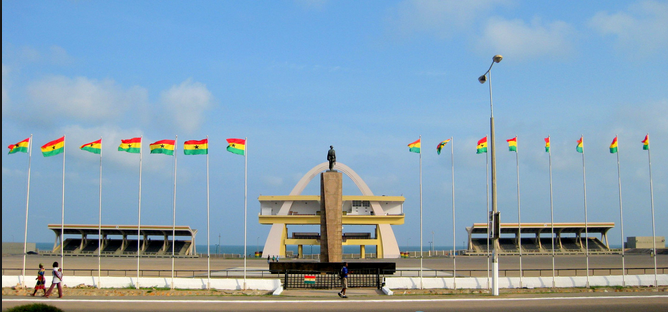Prof. Peter Quartey, Head, Economics Division, Institute of Statistical, Social and Economic Research (ISSER), University of Ghana has maintained that the current structure of the country, has made it difficult to attain economic independence.
According to the Economist, as long as the structural issues are not addressed, Ghana will still be heavily dependent on donors to run the economy.
“The fundamental structure remains the same. We continue to produce and export goods in its raw form, with very little diversification and value addition. Our means of production remains virtually unchanged; the hoe and the cutlass, little irrigation, little manufacturing value added.
“The best way for us is to try and add value, change the structure of production, change the structure of our products, add value, diversify and ensure proper economic management. I think we have not done too well when it comes to economic management. There is more room for improvement.”
Prof. Quartey
Prof. Quartey’s comments are a comeback on Ghana’s elevated debt situation and its biggest hurdle now to engage its international creditors for debt restructuring or a possible cancellation.
Today marks 66 years after Ghana secured political independence from its Colonial Master, the British. The political control since then died down with the country now enjoying democratic governance, with the citizenry, exercising their authority to institute their desired leaders to take over each government.

Meanwhile, economically, the country continues to struggle. Ghana is currently cash strapped with elevated debt hovering about its neck.
As part of the government’s solution to this, the Domestic Debt Restructuring Programme (DDEP) was introduced, which though came with lots of controversies, came to a successful end last month, February, and implementation now in full force.
Another big hurdle for the country currently is restructuring of its external debt, which has begun with engagements with China, which majority of Ghanaians are hopeful will be a fruitful one and will help in securing Ghana’s bailout loan from the International Monetary Fund (IMF), which is believed to further stabilize the economy.
Meanwhile, in the domestic market, the cedi has come under a lot of pressure recently, but has since last week maintained a good run.
Cedi’s performance attributed to BoG’s dollar support
Some market analysts have attributed the cedi’s performance to improved dollar support, coming from the Bank of Ghana (BoG). This has dealt with the sudden spike in demand by businesses since January, 2023 to finance their imports.
The Bank of Ghana since last month, February, 2023, made a move to support the Bulk oil Distribution Companies (BDCs) with the required dollars through an auction to finance imports of finished petroleum products.

This move by the central bank prevented the BDCs from going to the open market to demand dollars, a development that has helped to reduce the pressure on the limited amount of dollars in circulation. This will be described as good for the economy, if this trend should continue because of its impact on the cost of living in the country.
Some have argued it could help to reduce the prices of petroleum products, prices of some food stuffs and again reduce the cost of servicing some of the country’s loans. It will also lead to reduced cost of doing business with some enterprises in the country as well.
Today in the currency market, the cedi is selling at ¢12.85 per dollar, ¢15.40 for a pound and ¢13.64 for the euro; these rates, based on the average quotes that commercial banks in Ghana are offering to their clients for transactional purposes.
READ ALSO: FAO Food Prices Decline for Eleventh Consecutive Months




















